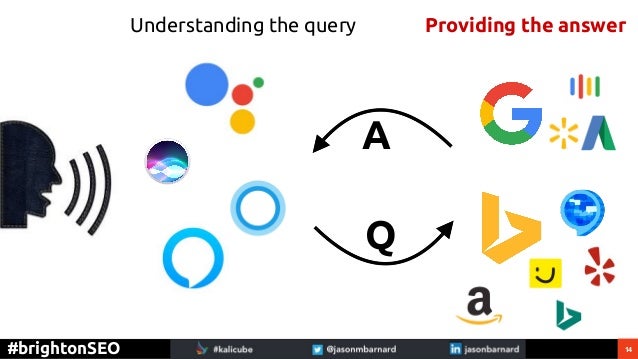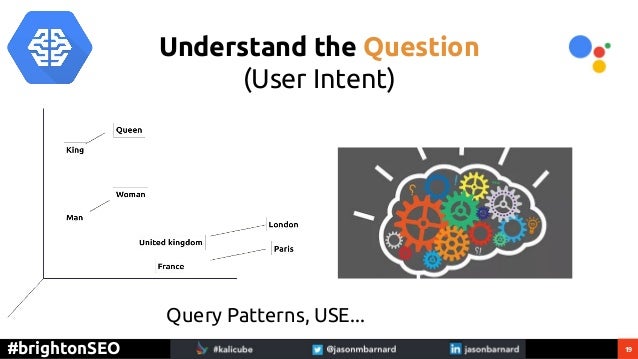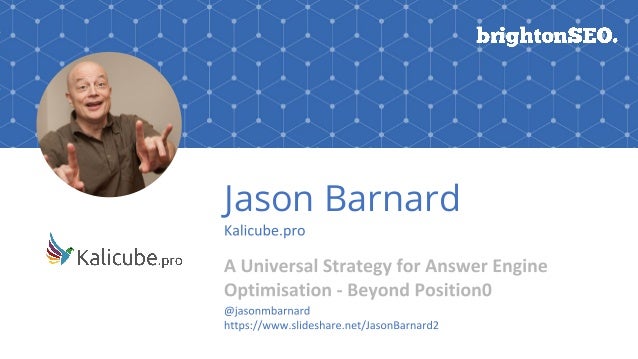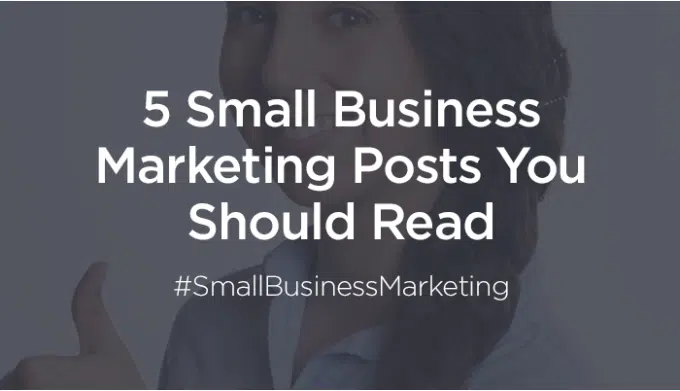Published on Deepcrawl April 24, 2018 (Sam Marsden)
This is the part of the article/event that cites Jason Barnard’s work:
A Universal Strategy for Answer Engine Optimisation (beyond position 0) – Jason Barnard
Talk Summary
Jason rounded off what was an excellent session in Auditorium 2 with a more philosophical talk covering how Google is using Machine Learning and how you should form a strategy around ensuring answer engines understand what your site/brand is about, reinforcing these with credible signals.
Key Takeaways
Google is now an AI company and their search engine has become an answer engine which we need to understand the inner workings of so we can form a strategy.
The Landscape
Voice assistants are becoming the norm and when we’re looking at optimising for them we need to consider that there are two sides to the equation.
- The front end is all about understanding the user and intent.
- The back end is all about providing an answer.

Machine Learning
Google have appointed veteran engineers and there has been a big “AI-first” push within the company.
Machine learning is starting to run search algorithms on the front and back end and there are three types:
- Supervised – Where the rules are known
- Unsupervised – Where no rules are known
- Semi-supervised – Where some rules are known
RankBrain is generally associated with the front end, but it doesn’t just understand user intent (understanding the question). RankBrain also helps Google to understand the available options (providing the answer).

The Strategy
Google is moving away from the knowledge graph with full information manually inputted. Google will eventually allow machine learning more freedom to deduce nodes from search queries as well as attributes.
As a result, you should make sure you communicate to Google who you are and what you offer with clear unambiguous content.
Corroboration – Provide Google with social proof and consistent signals that allow them to have more confidence in their understanding.
- Google is training machines to learn to learn and SEOs need to help them.
Pick four platforms and get positive reviews going e.g. trustpilot. Use your brand name plus ‘reviews’ to find the top four review platforms relevant to your business. - Despite popular belief you don’t need a Wikipedia page to appear in the knowledge panel.
- Create a positive buzz around your brand.







